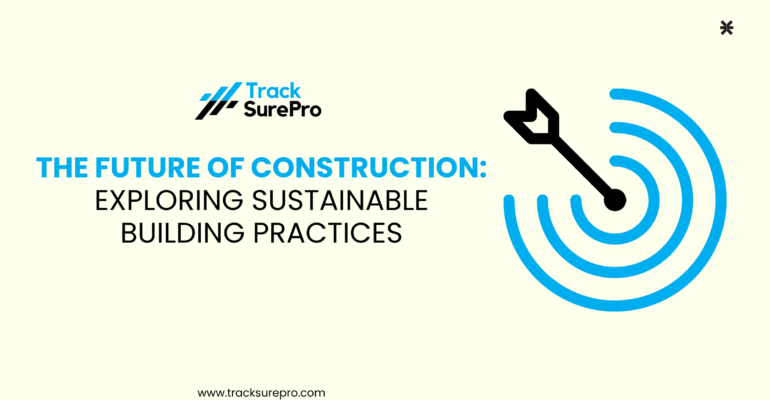The Future of Construction: Exploring Sustainable Building Practices

The Future of Construction: Exploring Sustainable Building Practices
Introduction:
As the world grapples with environmental challenges, the construction industry is increasingly turning to sustainable building practices to minimize its ecological footprint. From green building materials to energy-efficient designs, sustainable construction holds the key to a greener and more sustainable future. In this insightful guide, we’ll explore the latest trends and innovations in sustainable building practices, highlighting the importance of embracing sustainability in construction projects.
- Embracing Green Building Materials:
- One of the cornerstones of sustainable construction is the use of green building materials. These materials are sourced from renewable or recycled sources and have minimal environmental impact throughout their lifecycle. Contractors can opt for materials such as bamboo, reclaimed wood, recycled steel, and eco-friendly insulation to reduce carbon emissions and conserve natural resources. By embracing green building materials, contractors can build structures that are not only environmentally friendly but also durable and cost-effective in the long run.
- Implementing Energy-Efficient Designs:
- Energy efficiency is another crucial aspect of sustainable construction. Contractors can incorporate energy-efficient designs and technologies into their projects to reduce energy consumption and minimize environmental impact. This includes features such as passive solar design, high-performance insulation, energy-efficient HVAC systems, and LED lighting. By optimizing building designs for energy efficiency, contractors can lower operating costs, enhance occupant comfort, and contribute to a more sustainable built environment.
- Adopting Waste Reduction Strategies:
- Construction projects generate a significant amount of waste, but sustainable contractors are finding innovative ways to minimize this impact. By adopting waste reduction strategies such as recycling, salvaging materials, and implementing construction waste management plans, contractors can divert materials from landfills and reduce their environmental footprint. Tools like TrackSurePro can assist contractors in tracking waste generation, identifying opportunities for recycling, and implementing waste reduction initiatives, ultimately promoting a more sustainable approach to construction.
- Prioritizing Water Conservation:
- Water scarcity is a growing concern worldwide, making water conservation a top priority in sustainable construction. Contractors can implement water-efficient technologies and practices, such as low-flow plumbing fixtures, rainwater harvesting systems, and drought-resistant landscaping, to minimize water consumption on construction sites. By prioritizing water conservation, contractors can reduce water usage, lower utility costs, and contribute to the preservation of precious water resources for future generations.
- Embracing Digitalization and Technology:
- The future of construction lies in digitalization and technology, which can revolutionize the way buildings are designed, constructed, and operated. Contractors can leverage Building Information Modeling (BIM), drones, Internet of Things (IoT) sensors, and construction management software like TrackSurePro to streamline project workflows, improve communication, and optimize resource utilization. By embracing digitalization and technology, contractors can enhance project efficiency, reduce waste, and deliver sustainable buildings that meet the needs of the modern world.
Conclusion:
In conclusion, the future of construction is undeniably sustainable. By embracing green building materials, implementing energy-efficient designs, adopting waste reduction strategies, prioritizing water conservation, and embracing digitalization and technology, contractors can pave the way for a greener and more sustainable built environment. With tools like TrackSurePro, contractors can streamline sustainable construction practices, optimize project performance, and contribute to a brighter future for generations to come. Let’s embrace sustainability in construction and build a better world together.

